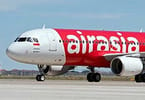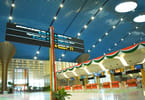Kevin Mitchell, Chairman of the Business Travel Coalition in the United States, wants the US Department of Transportation to request for an investigation of airlines fuel surcharge practices. He wrote this letter to Ms. Blane Workie, Assistant General Counsel, Office of Aviation Enforcement and Proceedings, US Department of Transportation, 1200 New Jersey Ave, SE, Washington, DC 20590:
Dear Ms. Workie,
The Business Travel Coalition urges the U.S. Department of Transportation (DOT) to launch a thorough and in-depth investigation with respect to the airline industry’s continued assessment of often-sizeable fuel surcharges on many itineraries in violation of DOTs clear Additional Guidance on Airfare/Air Tour Price Advertisements of February 21, 2012.
As DOT will be well aware, oil prices have plummeted some 50 percent over the course of the past year while most U.S. airlines have left their often outsized fuel surcharges in place. We believe that the continued, widespread imposition of these substantial, add-on fuel surcharges in the face of plummeting jet fuel prices cannot be justified. This practice therefore constitutes an unfair and deceptive act or practice and an unfair method of competition in violation of 49 U.S.C. §41712. Further, these pervasive violations of §41712 inflict massive overcharges on consumers.
On January 13, 2015, USAToday published an article entitled, Fuel Prices Fall, Yet Airline Surcharges Remain the Same that shone a bright spotlight on this behavior. The story reported as follows:
“If you don’t know about airline fuel surcharges, you’re not alone. They’re embedded in the price of a ticket and are especially hefty for international flights. Here’s a price breakdown on a major U.S. airline’s round-trip ticket between London and New York in February:
Base airfare: $403
Carrier-imposed charges: $458
As you can see, the carrier-imposed charges, or fuel surcharge, is higher than the cost of the actual airfare. And that same exact surcharge – $458 – was imposed on London-New York flights back in August, when a barrel of oil was going for $97, or twice the current price. Why are U.S. airlines keeping fuel surcharges, and keeping them so high?
Because they can. There is no incentive to drop prices because demand is good.
The continuing imposition of these enormous fuel surcharges despite the profound drop in the item of airline costs they are supposed to defray flouts the express admonitions of DOT in its Additional Guidance on Airfare/Air Tour Price Advertisements of February 21, 2012. In that Guidance, DOT specifically cautioned airlines that:
“When a cost component is described as a fuel surcharge, for example, that amount must actually reflect a reasonable estimate of the per-passenger fuel costs incurred by the carrier above some baseline calculated based on such factors as the length of the trip, varying costs of fuel, and number of flight segments involved.”
In that same Guidance, DOT repeated the point that to avoid being an unfair or deceptive practice, charges imposed on passengers as supposed fuel surcharges must bear a reasonable relationship to the per passenger cost of fuel, saying:
“Moreover, using the particular example noted above, we wish to remind carriers that amounts listed as charges for particular services must accurately reflect the actual costs of the service covered. Therefore, the fuel surcharge of $476 in the above example, which is associated with a transatlantic trip originating in New York City, must be an accurate reflection of the fuel cost over some reasonable baseline for an individual passenger for that trip and the carrier should be prepared to detail the services and costs per passenger associated with its Passenger service charge international.
In the investigation that we urge DOT to conduct, we call on DOT to hold the airlines assessing fuel surcharges to account — by requiring them to substantiate on a route-by-route basis that the fuel surcharges do indeed reflect the actual costs of fuel per passenger over some baseline amount. Several international airlines have eliminated or adjusted their fuel surcharges in an appropriate, pro-consumer manner to reflect the lower cost of fuel.
Unfortunately, since the U.S. airline industry was permitted in 2008 to embark on the path of what has become a radical consolidation, several anti-consumer themes have become common place. In order to shield a large part of the price of air travel from the pricing pressure that results from efficient comparison shopping, major U.S. airlines first unbundled services that had long been included in the ticket price and then largely withheld from the travel agency channel (such as on-line travel agencies) the prices of an ever-growing litany of services for which they insist consumers pay extra, such as the cost of a family having assigned seating together before showing up at the airport.
Similarly, and with the effect of creating a shortage of capacity that has in turn increased the demand pressures alluded to by this USAToday article, major U.S. airlines have become fervent practitioners of what they call capacity discipline. And the Big Three U.S carriers have worked together for the purpose of blocking new entry by foreign carriers. They have done this by pushing the Administration for modifications to Open Skies agreements that would erect barriers to foreign airline entry and expansion.
We urge DOT to investigate the airline industrys policies and practices regarding fuel surcharges. Furthermore, DOT should issue its long awaited rule on ancillary fees and restore true comparison-shopping by enabling consumers to see and buy ancillary services in the same transaction as the base fare so that they can do a true apples-to-apples comparison of what they will pay for the air travel services they need or want. Finally, DOT needs to communicate to U.S. major airline CEOs that it is steadfast in its commitment to upholding the integrity of the Open Skies policy and resulting agreements.
Sincerely,
Kevin Mitchell
Chairman
Business Travel Coalition
WHAT TO TAKE AWAY FROM THIS ARTICLE:
- Therefore, the fuel surcharge of $476 in the above example, which is associated with a transatlantic trip originating in New York City, must be an accurate reflection of the fuel cost over some reasonable baseline for an individual passenger for that trip and the carrier should be prepared to detail the services and costs per passenger associated with its Passenger service charge international.
- “When a cost component is described as a fuel surcharge, for example, that amount must actually reflect a reasonable estimate of the per-passenger fuel costs incurred by the carrier above some baseline calculated based on such factors as the length of the trip, varying costs of fuel, and number of flight segments involved.
- The continuing imposition of these enormous fuel surcharges despite the profound drop in the item of airline costs they are supposed to defray flouts the express admonitions of DOT in its Additional Guidance on Airfare/Air Tour Price Advertisements of February 21, 2012.






















